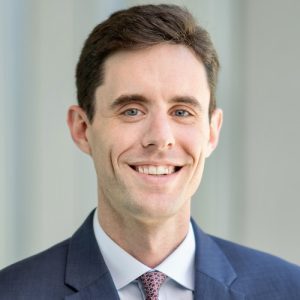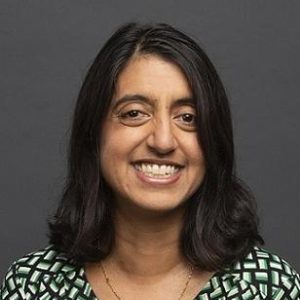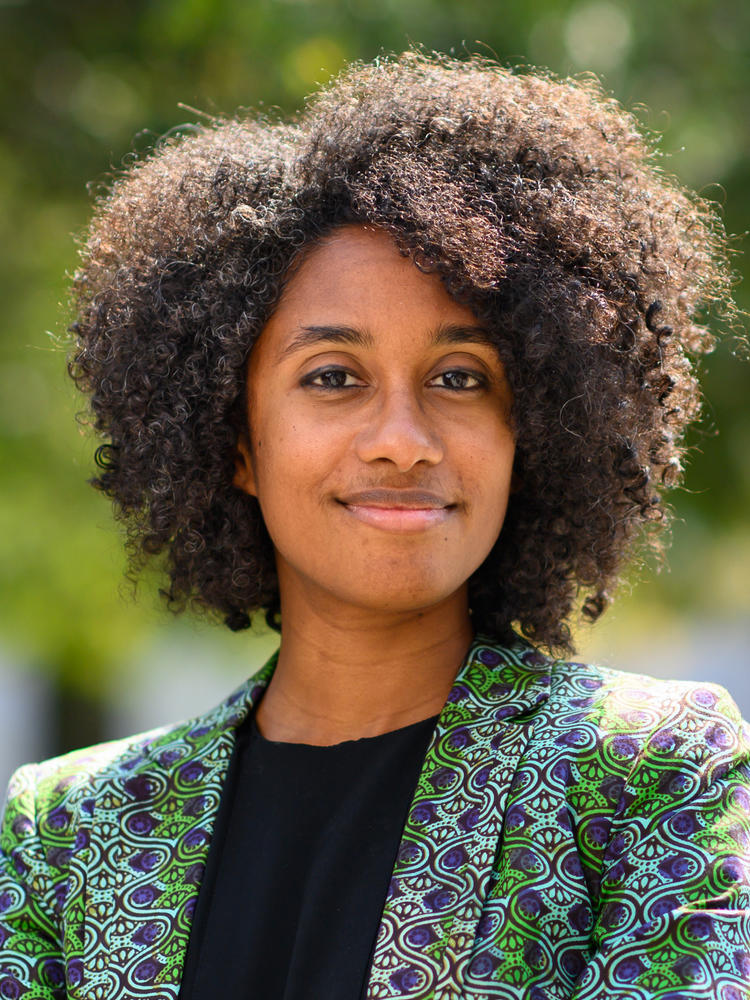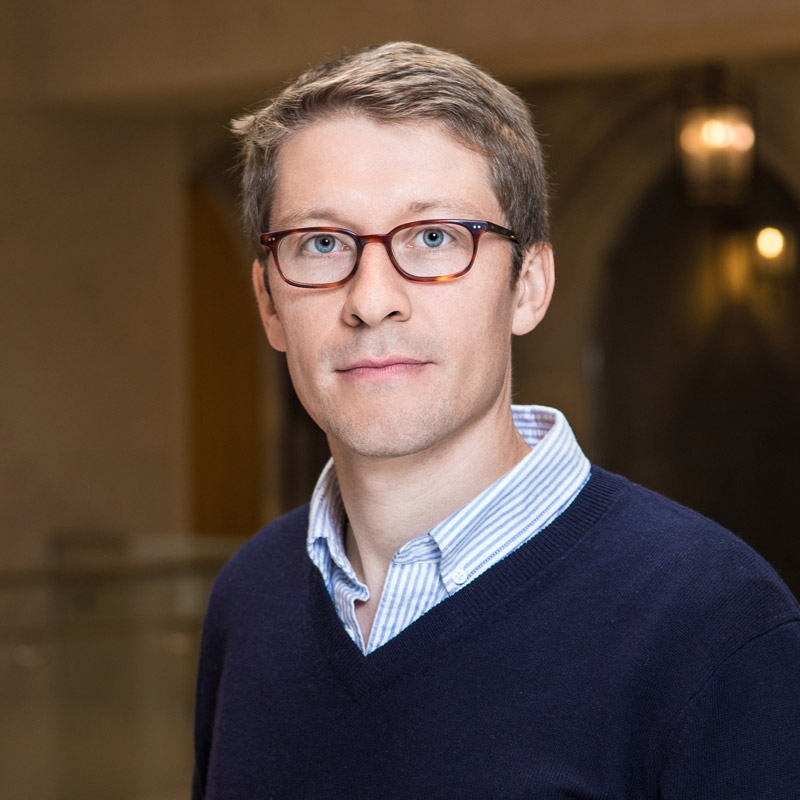The Benjamin H. Griswold III, Class of 1933, Center for Economic Policy Studies funds policy-related research projects within Princeton’s Department of Economics. In 1997 Nicholas J. Nicholas Jr., a member of Princeton’s Class of 1962, made a substantial gift to establish the Nicholas J. Nicholas Jr. Fund to offer support for faculty research. As part of this Fund, the Griswold Center for Economic Policy Studies (GCEPS) recognizes annually a Nicholas J. Nicholas Jr. Fellow for their outstanding research in economic policy.

Evan Soltas, Assistant Professor of Economics and Public Affairs at Princeton University, is the 2025-2026 Nicholas J. Nicholas Jr. Fellow. Soltas joined the Princeton faculty in 2025, after completing a postdoctoral fellowship at Microsoft Research New York City. He is a public finance economist interested in the welfare analysis of government policies, often in an urban or spatial context. Much of his research examines how taxes, subsidies, and regulations affect the “supply side” of the housing market. Soltas earned a PhD in economics from the Massachusetts Institute of Technology, an MPhil in economics from the University of Oxford where he was a Rhodes Scholar, and an AB in economics from Princeton University. He was the 2024 winner of the National Tax Association’s award for Outstanding Doctoral Dissertation in Government Finance and Taxation. Recent publications include: “A Welfare Analysis of Occupational Licensing in U.S. States” (Review of Economic Studies, 2023) with Morris Kleiner, and “The Price of Inclusion: Evidence from Housing Developer Behavior” (Review of Economics and Statistics, 2024). Current research projects examine how eligible households selectively take up U.S. transfer programs, with Charlie Rafkin and Adam Solomon, and the impacts and incidence of subsidies for low-income housing development.

Seema Jayachandran, Professor of Economics and Public Affairs at Princeton University, is the 2024-2025 Nicholas J. Nicholas Jr. Fellow. Jayachandran joined the Princeton faculty in 2023, after teaching at Northwestern University and Stanford University. Her research focuses on environmental conservation, gender equality, health, and other microeconomic topics in developing countries. She serves on the board of directors of the Abdul Latif Jameel Poverty Action Lab (J-PAL) and leads J-PAL’s gender sector. She is also co-director of the National Bureau of Economic Research’s program in Development Economics and co-editor of American Economic Review: Insights. In addition, she serves on CARE’s board of directors. She earned a PhD in economics from Harvard University, a master’s degree in physics and philosophy from the University of Oxford where she was a Marshall Scholar, and a bachelor’s degree in electrical engineering from MIT. Recent publications include: “Environmental Externalities and Free-Riding in the Household,” with Kelsey Jack, Flavio Malagutti, and Sarojini Rao (Journal of Development Economics, 2024), “A Mother’s Voice: Impacts of Spousal Communication Training on Child Health Investments,” with Martina Björkman Nyqvist, and Céline Zipfel (Journal of Development Economics, 2024), and “Ten Facts about Son Preference in India” (India Policy Forum, forthcoming).

Sylvain Chassang, Professor of Economics at Princeton University, is the 2023-2024 Nicholas J. Nicholas Jr. Fellow. Chassang re-joined the Princeton University faculty in 2020, after teaching at New York University from 2016–20. His research interests are in game theory, industrial organization, and development. Chassang is a member of the French Council of Economic Advisors. He previously served as co-editor at the American Economic Review, and as associate editor of the Quarterly Journal of Economics, the Review of Economic Studies, and Theoretical Economics. He is also a fellow of the Econometric Society and a previous winner of the Alfred P. Sloan Fellowship. Chassang received master’s degrees in economics and mathematics from Ecole Normale Supérieure, and earned his PhD from MIT. Recent publications include: “Regulating Collusion,” with Juan Ortner; “Robust Screens for Non-Competitive Bidding in Procurement Auctions,” with Kei Kawai, Jun Nakabayashi, and Juan Ortner; and “Data-Driven Incentive Alignment in Capitation Schemes,” with Mark Braverman. Current research examines monitoring harassment in organizations with Laura Boudreau, Ada Gonzales-Torres, and Rachel Heath; valuing the time of the self-employed with Daniel Agness, Travis Baseler, Pascaline Dupas, and Erik Snowberg; and methods to improve tax collection with Lucia Del Carpio and Sam Kapon.

Ellora Derenoncourt, Assistant Professor of Economics at Princeton University and a member of the Industrial Relations Section of Princeton Economics, is the 2022-2023 Nicholas J. Nicholas Jr. Fellow. Derenoncourt is also the founder and faculty director of the Program for Research on Inequality (PRI) at Princeton Economics. She works on labor economics, economic history, and the study of inequality. Recently she has studied the northern backlash against the Great Migration and ensuing declines in black upward mobility, the role of federal minimum wage policy in racial earnings inequality, and the long-run evolution of the racial wealth gap. Her work has been featured in the Economist, the New York Times, and Wall Street Journal. She received her B.A. from Harvard University, M.Sc. from London School of Economics, and Ph.D. in economics from Harvard University. Recent publications by Derenoncourt include “Can you move to opportunity? Evidence from the Great Migration,” 2022 and “Minimum Wages and Racial Inequality,” with Claire Montialoux, 2021. Her current research examines the evolution of the racial wealth gap in the US from 1860 to 2020 with Chi Hyun Kim, Moritz Kuhn, and Moritz Schularick and the role of labor market institutions on racial inequality and informality in Brazil with François Gerard, Lorenzo Lagos, and Claire Montialoux.

Stephen Redding, Harold T. Shapiro *64 Professor in Economics in the Economics Department and School of Public and International Affairs, is the 2021-2022 Nicholas J. Nicholas Jr. Fellow. Redding also is director of the International Trade and Investment (ITI) Program of the National Bureau of Economic Research (NBER), a fellow of the Econometric Society, and a Research Fellow of the Centre for Economic Policy Research (CEPR). Prior to joining Princeton University, he was a Professor in Economics at the London School of Economics and the Yale School of Management. His research interests include international trade, economic geography, and productivity growth. Recent work has been concerned with heterogeneous firms, multi-product firms, the distributional consequences of globalization, agglomeration forces, and transport infrastructure improvements. He was awarded the Frisch Medal in 2018, the Bhagwati Prize in 2017, a Global Economic Affairs Prize from the Kiel Institute for the World Economy in 2008, and a Philip Leverhulme Prize Fellowship during 2001-4. Redding received his D.Phil. in Economics from Nuffield College, University of Oxford and his First Class Honours Degree in Philosophy, Politics and Economics (PPE) from Magdalen College, University of Oxford.

Owen Zidar, Professor of Economics and Public Affairs, is the 2020-2021 Nicholas J. Nicholas Jr. Fellow. Zidar studies the taxation of firms and top earners, local fiscal policy, and the creation and distribution of economic resources. Before Princeton, Zidar worked as an assistant professor of economics at University of Chicago Booth School of Business, a staff economist at Council of Economic Advisers, and as an analyst at Bain Capital Ventures. He holds a Ph.D. from the University of California at Berkeley and a B.A. from Dartmouth College, both in economics. He is a 2018 recipient of a National Science Foundation CAREER Award and a 2020 recipient of a Sloan Research Fellowship. Recent publications include: “Tax Cuts for Whom? Heterogeneous Effects of Income Tax Changes on Growth and Employment,” in the Journal of Political Economy; and “Evaluating State and Local Business Tax Incentives” (with co-author Cailin Slattery), in the Journal of Economic Perspectives. Zidar continues researching topics related to capital taxation and state and local economic policy. In one project, he is investigating the links between entrepreneurship and opportunity using U.S. tax data. In a second project, he is evaluating the tax cuts and jobs act as well as prior tax reforms.
- Evan Soltas, 2025-2026
- Seema Jayachandran, 2024-2025
- Sylvain Chassang, 2023-2024
- Ellora Derenoncourt, 2022-2023
- Stephen Redding, 2021-2022
- Owen Zidar, 2020-2021
- Leeat Yariv, 2019-2020
- Christopher Sims, 2018-2019, 2013-2014, 2004-2005
- Janet Currie, 2017-2018
- Harvey Rosen, 2016-2017, 2012-2013
- Ilyana Kuziemko, 2015-2016
- Greg Kaplan, 2014-2015
- Alan Blinder, 2011-2012
- Jan De Loecker, 2010-2011
- Hyun Song Shin, 2009-2010
- David Lee, 2008-2009
- Jesse Rothstein 2007-2008
- Christina Paxson, 2006-2007
- Thomas Palfrey, 2005-2006
- Lars Svensson, 2003-2004
- David Bradford, 2002-2003
- Burton Malkiel, 2001-2002
- Jeffery Kling, 2000-2001
- Cecelia Rouse, 1999-2000
- Alan Krueger, 1998-1999
- Henry Farber, 1997-1998
